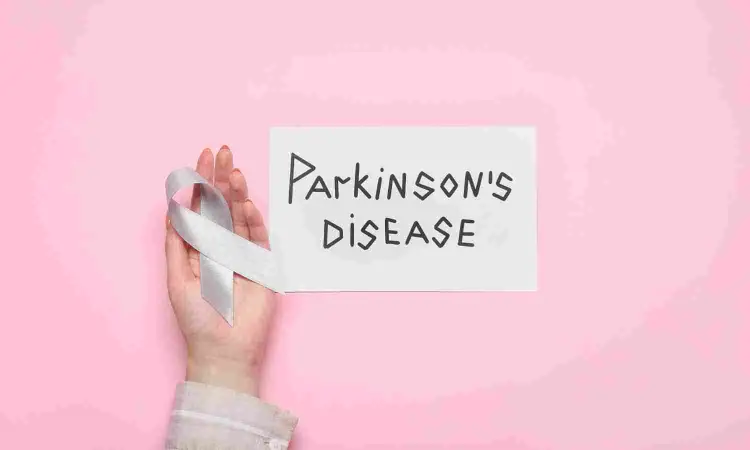- Home
- Medical news & Guidelines
- Anesthesiology
- Cardiology and CTVS
- Critical Care
- Dentistry
- Dermatology
- Diabetes and Endocrinology
- ENT
- Gastroenterology
- Medicine
- Nephrology
- Neurology
- Obstretics-Gynaecology
- Oncology
- Ophthalmology
- Orthopaedics
- Pediatrics-Neonatology
- Psychiatry
- Pulmonology
- Radiology
- Surgery
- Urology
- Laboratory Medicine
- Diet
- Nursing
- Paramedical
- Physiotherapy
- Health news
- Fact Check
- Bone Health Fact Check
- Brain Health Fact Check
- Cancer Related Fact Check
- Child Care Fact Check
- Dental and oral health fact check
- Diabetes and metabolic health fact check
- Diet and Nutrition Fact Check
- Eye and ENT Care Fact Check
- Fitness fact check
- Gut health fact check
- Heart health fact check
- Kidney health fact check
- Medical education fact check
- Men's health fact check
- Respiratory fact check
- Skin and hair care fact check
- Vaccine and Immunization fact check
- Women's health fact check
- AYUSH
- State News
- Andaman and Nicobar Islands
- Andhra Pradesh
- Arunachal Pradesh
- Assam
- Bihar
- Chandigarh
- Chattisgarh
- Dadra and Nagar Haveli
- Daman and Diu
- Delhi
- Goa
- Gujarat
- Haryana
- Himachal Pradesh
- Jammu & Kashmir
- Jharkhand
- Karnataka
- Kerala
- Ladakh
- Lakshadweep
- Madhya Pradesh
- Maharashtra
- Manipur
- Meghalaya
- Mizoram
- Nagaland
- Odisha
- Puducherry
- Punjab
- Rajasthan
- Sikkim
- Tamil Nadu
- Telangana
- Tripura
- Uttar Pradesh
- Uttrakhand
- West Bengal
- Medical Education
- Industry
Erasing "bad motor memories" may improve long term Parkinson's disease treatment, claims study

Common treatments for Parkinson's disease can address short-term symptoms but can also cause extensive problems for patients in the long run. Namely, treatments can cause dyskinesia, a form of uncontrollable movements and postures.
In a recent study published in The Journal of Neuroscience, researchers at the University of Alabama at Birmingham took a different approach to dyskinesia and treated it like a “bad motor memory.” They found that blocking a protein called Activin A could halt dyskinesia symptoms and effectively erase the brain’s “bad memory” response to certain Parkinson’s treatments.
“Instead of looking for a completely alternative treatment, we wanted to see if there was a way to prevent dyskinesia from developing in the first place,” said David Figge, M.D., Ph.D., lead study author and assistant professor in the UAB Department of Pathology. “If dyskinesia does not occur, then patients could potentially stay on their Parkinson’s treatment for longer.”
Parkinson’s disease is a neurodegenerative disorder caused by the death of neurons that make dopamine. To counteract this loss, clinicians currently use L-DOPA, a drug that is a precursor to dopamine.
Short term, L-DOPA is helpful; but long term, it leads to L-DOPA-induced dyskinesia in some patients, which causes involuntary, erratic movements such as twitching, fidgeting, head-bobbing or body swaying. Even if a patient stops taking L-DOPA for a certain period, dyskinesia has proved to come back quickly-as soon as these patients restart treatment.
“It seemed like the brain was forming a motor memory, and each time a patient received L-DOPA treatment, this memory then recalled upon every subsequent L-DOPA exposure,” said Karen Jaunarajs, Ph.D., assistant professor in the UAB Department of Neurology.
Due to the overlaps between motor and behavioral memory, the team decided to approach dyskinesia like a bad memory. If they could find a way to cause the brain to forget its previous treatment history, they could potentially prolong the usefulness of L-DOPA for Parkinson’s treatment.
Researchers first studied the striatum, the brain region significant to motor control, to figure out which cells were storing the “bad motor memory.” The most significant changes observed were in neurons called D1-MSNs, which acted in a similar way to neurons in the hippocampus when it is forming a memory.
“We found that some of these D1-MSNs were expressing genes indicating that they were being activated by L-DOPA and genes that were necessary for creating new connections with other cells,” Figge said. “This was very similar to what happens when you learn something new and recall that memory.”
Researchers found that one gene in these L-DOPA-activated D1-MSN neurons is translated into a protein called Activin A. By blocking the function of Activin A, researchers were able to block the development of L-DOPA-induced dyskinesia in mouse models.
“In essence, by prohibiting the protein from functioning, we were able to halt the development of dyskinesia symptoms in the mouse models, effectively erasing the brain’s memory of the motor response to L-DOPA,” Jaunarajs said.
Ultimately, the hope is that these findings will lead to an understanding of how to block these bad motor memories altogether-eradicating dyskinesia-related symptoms in Parkinson’s patients.
Reference:
David A. Figge, Henrique de Amaral Oliveira, Jack Crim, Rita M. Cowell, David G. Standaert and Karen L. Eskow Jaunarajs, Differential Activation States of Direct Pathway Striatal Output Neurons during l-DOPA-Induced Dyskinesia Development, https://doi.org/10.1523/JNEUROSCI.0050-24.2024.
Dr Kamal Kant Kohli-MBBS, DTCD- a chest specialist with more than 30 years of practice and a flair for writing clinical articles, Dr Kamal Kant Kohli joined Medical Dialogues as a Chief Editor of Medical News. Besides writing articles, as an editor, he proofreads and verifies all the medical content published on Medical Dialogues including those coming from journals, studies,medical conferences,guidelines etc. Email: drkohli@medicaldialogues.in. Contact no. 011-43720751


